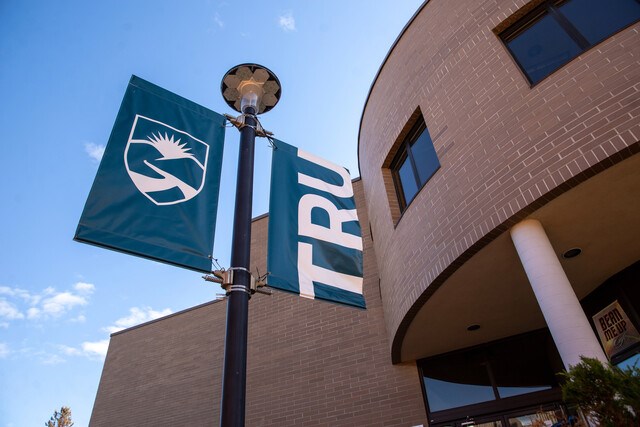After beginning a process to potentially close its visual arts programs in April, a Thompson Rivers University executive says the university’s board of governors is expected to make a final decision on the program's fate at an upcoming meeting.
In a written statement to Castanet Kamloops, Gillian Balfour, TRU provost and vice-president academic, said the board will consider advice on educational and financial impacts from the university's senate before making its final decision.
“The board is expected to consider the senate's advice and make final decisions at an upcoming meeting,” she said.
In April, TRU announced the BFA program would be phased out over three years. The university then backtracked on that and said the program was under review. Enrolment was suspended in April pending that review.
TRU visual arts professor Donald Lawrence told Castanet in October that discussion around suspending visual arts enrolment has been “confusing.”
“In terms of abeyance, it's unclear to me at the moment whether anything in here was put in abeyance,” said Lawrence, referencing TRU's faculty-driven abeyance process, which can put admissions to a program on hold.
“Enrolments in individual courses haven't necessarily been stopped, but application to programs has been stopped. That's the best that I can understand myself.”
Balfour said none of the the visual arts programs are in abeyance, despite previous presentations to senate and the board of governors referencing and discussing the process.
“Previous mentions of abeyance were intended to be educational and highlight the differences between faculty-driven program reviews and the specific policy-driven process TRU is currently undertaking,” Balfour said.
Balfour said questions among faculty and senate about the process are appropriate, but don’t necessarily indicate “confusion.”
“It is natural for governing bodies to ask questions and seek clarification, especially regarding the application of infrequently used academic policies,” she said.
Balfour said the university is applying its program reductions and eliminations policy for the first time, which doesn’t state applications need to be suspended as part of the process. She said she suspended applications at the request of the dean of arts, Richard McCutcheon, to “align with ongoing strategic discussions regarding the possible future of programming in the faculty of arts.”
“The authority to do so lies with the board, is delegated to administration, and is inherent to the process,” she said.
In a presentation in May, McCutcheon told senate the basis for the potential program closure was three-pronged — student attrition, financial concerns and workload inequity all being contributing factors.
The TRU Faculty Association sent a letter to the university’s board in October, saying workload inequity concerns were “inappropriate and irrelevant.”
“TRUFA takes the position that workload is not in any way a factor that should be considered or relied on when justifying a program closure,” the association said in the letter.
TRUFA's letter is a response to an email sent by Balfour on Sept. 28, in which declining student demand, sagging faculty engagement and “concerning” workload inequity within the faculty of arts were all identified as concerns.
The same letter showed two new certificate programs have been placed on the chopping block — the drawing and painting certificate and certificate in literary and art history — bringing the total number of programs up for proposed reduction or elimination to six.
A previous letter to visual arts faculty in June said a proposed reduction or elimination of visual arts programs would only include the bachelor of visuals arts, the minor, the diploma and the certificate.
Craig Jones, a TRU senator and law professor, has also raised concerns about policy not being followed, saying senate never received a motion to provide advice to the board.
TRU President Brett Fairbairn told university senators in September that the board’s usual practice is to not pass a motion when asking for advice, which is in line with its past practices.
Jones told Castanet past practice doesn’t trump the requirements of the board bylaws and could put the university at legal risk.
Correspondence containing proposed senate resolutions from Jones will be circulated to the board of governors at the Dec. 1 meeting, following the next senate meeting on Nov. 27.
One of the proposed resolutions states that senate will not provide advice to the board until a written request for advice is received.
In a memo to TRU senators on Nov. 10, Fairbairn said the board is expecting advice from senate about the proposed elimination of the "four named programs," not the six programs listed in Balfour's email to the department in September.
“The relevant board policy states that the board will give senate at least 10 working days, and normally one month, to provide its advice, and the board has already allowed for more than that,” Fairbairn said in the letter.
“Should senate refuse to provide its advice, the board may nonetheless proceed with its decision regarding the programs on the information it has before it.”
In her statement, Balfour said there would be no job losses as a result of any closures. She said currently enrolled students will be able to complete their degrees and applications will be reinstated in the case that a program continues.


